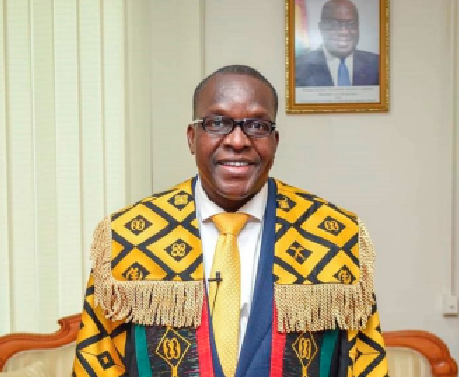
Constitution – Appointment of ministers, related matters
I do not say it is unconstitutional or unlawful for an MP to be a regional minister at the same time, but as the Bible says in 1 Corinthians 10:23: “All things are lawful for me, but all things are not expedient: all things are lawful for me, but all things edify not.”
I believe conventions should grow around the Constitution and it should be possible in the spirit of the Constitution to operate it with the understanding that regional ministers cannot be MPs at the same time.
Advertisement
If express provision is required, I will suggest that Article 256, which is not an entrenched provision, be amended to contain a provision that where an MP is appointed a regional minister or a deputy regional minister he vacates his seat.
Article 97(1), which is also not entrenched, may be amended to the same effect. It follows from what I have said that conceptually, even the Greater Accra Regional minister, whose office is in Accra, shall not also be an MP, though Parliament holds its sittings in Accra.
Senior minister
Twice under this Constitution, the appointment of a senior minister has been made “with the prior approval of Parliament”.
I am not aware of any provision in the Constitution that expressly, or by necessary implication, creates or remotely or faintly suggests the creation of the Office of Senior Minister or a similitude of it.
Vice-President
The Constitution does not indicate what should be done when the office of Vice-President becomes vacant, through resignation, death or his removal from office under Articles 60(14) and 69. This is a veritable cause omission.
The Constitution only provides in Article 60(13) that “where the Speaker of Parliament assumes the office of President as a result of the death, resignation or removal from office of the President and the Vice-President, there shall be a presidential election within three months after his assumption of office”.
The mode of the Vice-President signifying his resignation is not indicated in the Constitution. I assume he will have to do it by writing signed by him and, maybe, addressed to the President. There should be express provisions in the Constitution on this matter, just as we have in the case of the President (Article 66(4)), the Speaker and Deputy Speakers of Parliament (Article 95(2) and 96(3)) and an MP (Article 97(1)(f)).
There should also be express provisions as to how a vacancy in the office of a Vice-President should be filed.
We are, however, not without an answer to the problem. In case of that eventuality, Parliament can exercise its residual powers under Article 298 of the Constitution, which states that, “Subject to the provisions of Chapter 25 of this Constitution, where on any matter, whether arising out of this Constitution or otherwise, there is no provision, express or by necessary implication of this Constitution which deals with the matter that has arisen, Parliament shall, by an Act of Parliament, not being inconsistent with any provision of this Constitution, provide for that matter to be dealt with.”
This Constitution has been operated for 28 years and there are certainly some portions, apart from the very few referred to above, that may require re-consideration and appropriate remedial action in the public interest and to strengthen our democracy.
The first part was published on Monday, Februarty 8, 2021
The writer is a retired Appeals Court Judge




